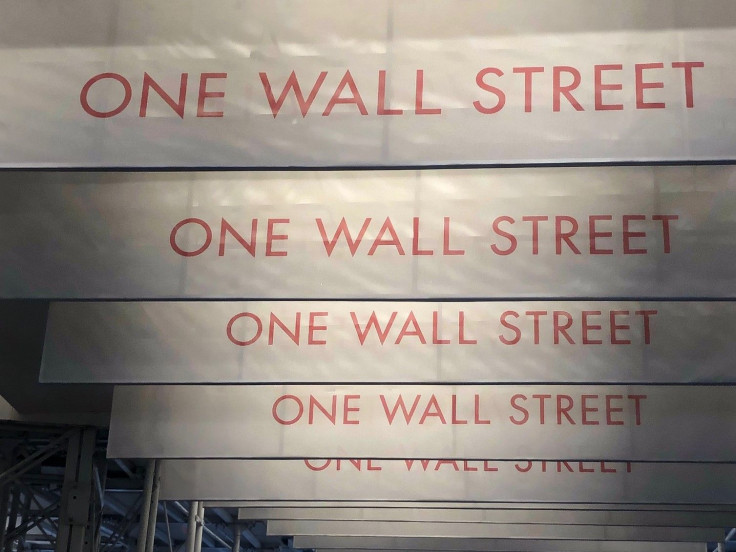Wednesday's Stock Market Open: US Equities Rise Despite Grim Private Payroll Data

KEY POINTS
- ADP said more than 20 million private sector jobs were lost in April
- German factory orders plunged by 15.6% in March
- European Commission predicted that the EU economy will shrink by 7.5% this year
Update: 12:05 p.m. EDT:
U.S. stocks turned mixed in noon Wednesday trading.
The Dow Jones Industrial Average fell 63.53 points to 23,819.56, while the S&P 500 slipped 2.2 points to 2,866.24 and the Nasdaq Composite Index gained 77.31 points to 8,886.43.
In Europe markets finished mixed, as Britain’s FTSE-100 edged up 0.07%, while France’s CAC-40 fell 1.11% and Germany’s DAX dropped 1.15%.
Original story:
U.S. stocks opened higher on Wednesday, building upon two-day rally, as traders consider the impact of more states gradually reopening businesses. However, economic data was grim.
The Dow Jones Industrial Average rose 150.83 points to 24,033.92, while the S&P 500 climbed 19.7 points to 2,888.14 and the Nasdaq Composite Index gained 70.51 points to 8,879.63.
The state of California will allow clothing stores, bookstores and flower shops to reopen for curbside pickup on Friday. The state of New York will relax restrictions on manufacturers, construction, and some retailers starting next week.
While President Donald Trump said on Tuesday that “there’ll be more death” in the U.S. from coronavirus, he nonetheless insisted that not reopening businesses would be costly to people.
“The market is enjoying the economy opening, albeit on a phased-in schedule but that more and more states are opening,” said Quincy Krosby, chief market strategist for Prudential Financial. “The numbers in terms of new [virus] cases remain at a level that does not, at this point, suggest that the opening is causing cases to rise.”
However, ADP said on Wednesday that more than 20 million private sector jobs were lost in April – the biggest drop in the ADP survey history. (The prior monthly record was 834,665 jobs lost in February 2009)
“Job losses of this scale are unprecedented,” said Ahu Yildirmaz, co-head of the ADP Research Institute. “The total number of job losses for the month of April alone was more than double the total jobs lost during the Great Recession.”
St. Louis Federal Reserve President James Bullard said on Wednesday that Friday’s jobs report for April could be one of the worst in U.S. history.
“I’ve long maintained that the main impact here will be in the second quarter, the negative impact. We’re going to see crazy ADP numbers today and the jobs report will probably be one of the worst ever on Friday,” Bullard said. “But that’s kind of expected because you’re using the unemployment insurance program to provide pandemic relief. That’s exactly what we want to do.”
On Tuesday, Federal Reserve Vice Chairman Richard Clarida said the U.S. economy could bounce back in the third quarter.
“Our policies we think will be very important in making sure that the rebound will be as robust as possible. We’re in a period of some very, very, very hard and difficult data that we’ve just not seen for the economy in our lifetimes,” Clarida said.
Clarida also warned the economy will likely require more support from the government.
Krosby added: “The question will be if the market is moving too quickly, too fast as we see this resumption of interest in equities. But for now the market is resuming the move towards absorbing the weaker economic data but essentially trying to look beyond to see whether or not the economy can open at a more accelerated pace.”
German factory orders plunged by 15.6% in March, the largest monthly decrease since such data-keeping started in 1991.
The European Commission predicted that the EU economy will shrink by 7.5% this year, the worst showing since the 1930s.
“As we ease these lockdowns there remains the risk that of course you then have to tighten up the controls,” said Andrew Wilson, chairman of global fixed income at Goldman Sachs Asset Management. “It is absolutely dependent on what happens with respect to infection rates and whether there is the so-called second wave.”
Overnight in Asia, the Shanghai Composite rose 0.63% and Hong Kong’s Hang Seng gained 1.13%. Tokyo Stock Exchange was closed for holidays.
In Europe markets traded mixed, as Britain’s FTSE-100 rose 0.63%, while France’s CAC-40 fell 0.26% and Germany’s DAX slipped 0.16%.
Crude oil futures fell 3.5% at $23.70 per barrel, Brent crude dropped 2.42% at $30.22. Gold futures rumbled 1.19%.
The euro slipped 0.17% at $1.0819 while the pound sterling edged down 0.35% at $1.2392.
© Copyright IBTimes 2025. All rights reserved.





















